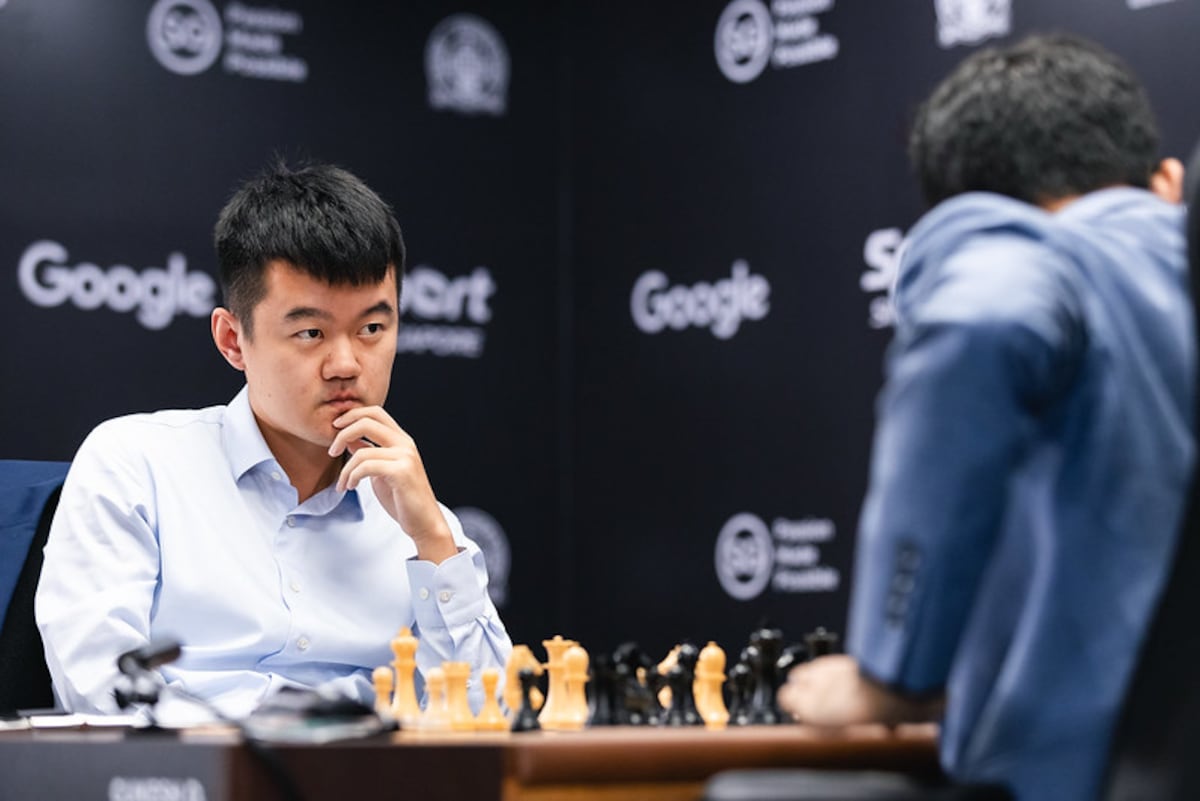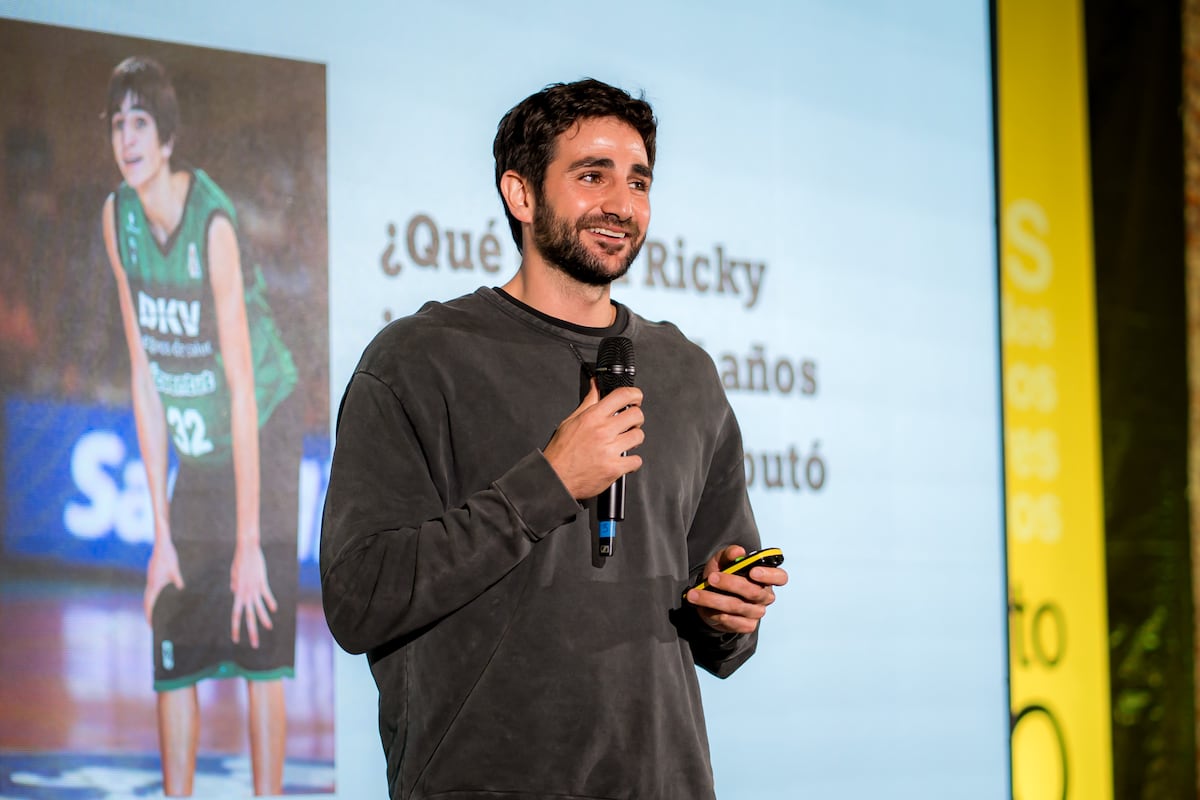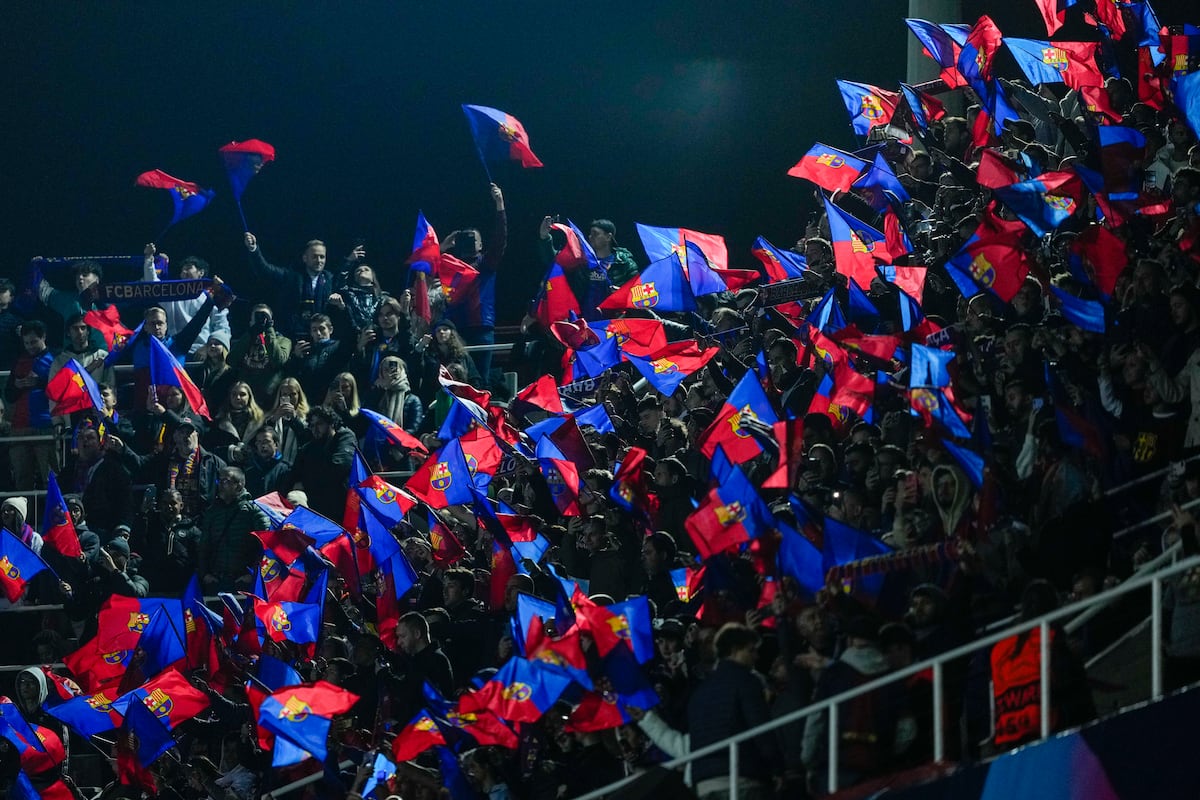It is certain that winning the first game of the World Cup on Monday after a serious crisis of a year and a half was an injection of self-esteem for the current champion, Liren Ding. But it is highly unlikely that such a deep hole (psychological and sporting) will be fixed in a single day. So the Chinese chose to tie the second in three hours despite having achieved a small but lasting advantage. The Indian Dommaraju Gukesh, who, at 18, is the youngest candidate in history, will have the initiative for the white pieces this Wednesday in the duel in Singapore, endowed with 2.4 million euros in prizes.
Five-time world champion Viswanathan Anand, whose exploits—he is now 10th in the rankings at age 54, despite the fact that decline usually begins around age 40—have skyrocketed the popularity of chess in a country of some 1.45 billion inhabitants, blessed the general belief in the press room after a couple of hours of fighting: “Ding has won the opening battle. It’s not much, but it’s quite annoying when you’ve lost the first game and you’re worse off in the second.”
Certainly, everything indicated that the Chinese was very comfortable in a position without risk and with a small advantage, which he had achieved after surprising the Indian in the fourteenth set with a subtle and very fine laboratory preparation. On the contrary, Gukesh made gestures of some discomfort, logical if one takes into account that his strongest point is the precise calculation of very complex variants; Ding had dried up the game in such a way that his prodigious rival had to choose between accepting annoying passivity or taking highly dangerous risks.
Furthermore, it is likely that the young Indian is in a mixture of contrary emotions that are difficult to sort out. On the one hand, his performance just two months ago at the Budapest Chess Olympiad was impressive: 9 points in ten games, which contributed a lot to the gold medal for India. On the other hand, he has lost the three he has played with white against Ding so far (January 2023, January 2024, and Monday), and he had only been able to draw the only one with black (last August).
Why then didn’t the champion continue to press safely in this second round? The answer may be in the numbers: Monday’s victory was the first in their last 28 games: 21 draws and seven losses. And with a painful constant frustration, which he confessed three weeks ago to the Norwegian journalist Kaja Snare (YouTube channel Take, Take, Take):“In several of those 28 games I achieved winning positions, but I was not able to convert them into victories. Over and over again, the same problem.”
This Tuesday in Singapore, with great relief from the enormous weight that was lifted from his shoulders on Monday, Ding decided that pressing without risk was the wisest way to poke at Gukesh’s wound for three hours. And he concluded that saving strength for a very long duel was better than struggling for another two or three hours to squeeze out a minimal advantage. And since Gukesh’s position was not one for great joy, the Indian had to accept the draw proposal and continue ruminating on the thought that probably had been gnawing at him since 24 hours before: how is it possible that a guy who seemed physically and mentally destroyed erased me? of the board with such clarity? Both need time to heal their wounds, whose origins are very different.







